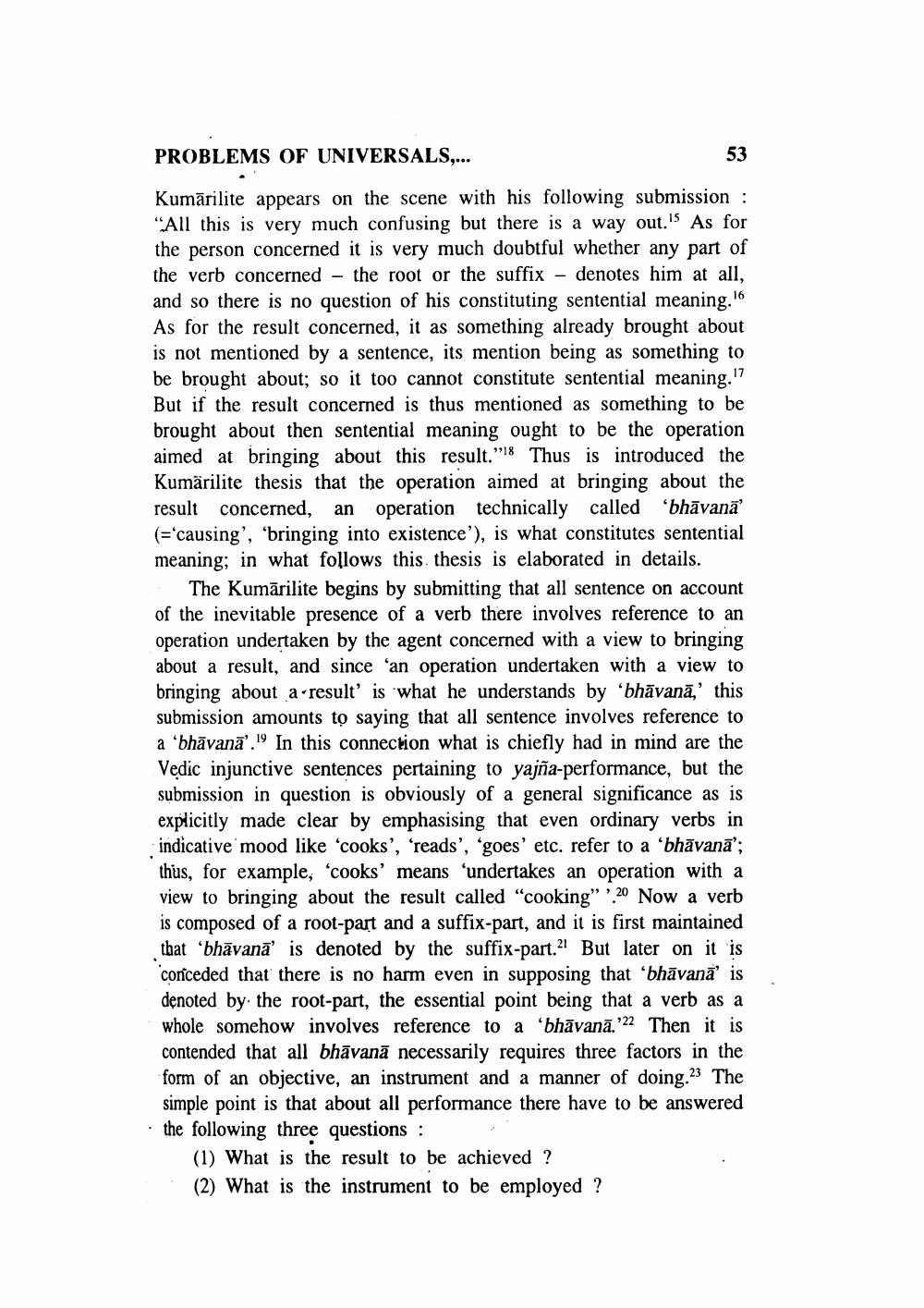________________
53
PROBLEMS OF UNIVERSALS,... Kumārilite appears on the scene with his following submission : "All this is very much confusing but there is a way out. As for the person concerned it is very much doubtful whether any part of the verb concerned - the root or the suffix - denotes him at all, and so there is no question of his constituting sentential meaning. 6 As for the result concerned, it as something already brought about is not mentioned by a sentence, its mention being as something to be brought about; so it too cannot constitute sentential meaning." But if the result concerned is thus mentioned as something to be brought about then sentential meaning ought to be the operation aimed at bringing about this result."'18 Thus is introduced the Kumärilite thesis that the operation aimed at bringing about the result concerned, an operation technically called 'bhāvanā' (='causing', 'bringing into existence'), is what constitutes sentential meaning; in what follows this thesis is elaborated in details.
The Kumārilite begins by submitting that all sentence on account of the inevitable presence of a verb there involves reference to an operation undertaken by the agent concerned with a view to bringing about a result, and since 'an operation undertaken with a view to bringing about a result is what he understands by 'bhāvanā,' this submission amounts to saying that all sentence involves reference to a 'bhāvanā'.19 In this connection what is chiefly had in mind are the Vedic injunctive sentences pertaining to yajña-performance, but the submission in question is obviously of a general significance as is explicitly made clear by emphasising that even ordinary verbs in indicative mood like 'cooks', 'reads', 'goes' etc. refer to a 'bhāvanā'; thus, for example, 'cooks' means 'undertakes an operation with a view to bringing about the result called "cooking":20 Now a verb is composed of a root-part and a suffix-part, and it is first maintained that 'bhāvanā' is denoted by the suffix-part.21 But later on it is conceded that there is no harm even in supposing that 'bhāvanā' is denoted by the root-part, the essential point being that a verb as a whole somehow involves reference to a 'bhāvanā. °22 Then it is contended that all bhāvanā necessarily requires three factors in the form of an objective, an instrument and a manner of doing.23 The
simple point is that about all performance there have to be answered • the following three questions : 2
(1) What is the result to be achieved ? (2) What is the instrument to be employed ?




